From the domination of dwarf Spitz to where a homebody wants to go for a walk (1.5 months in Spain)
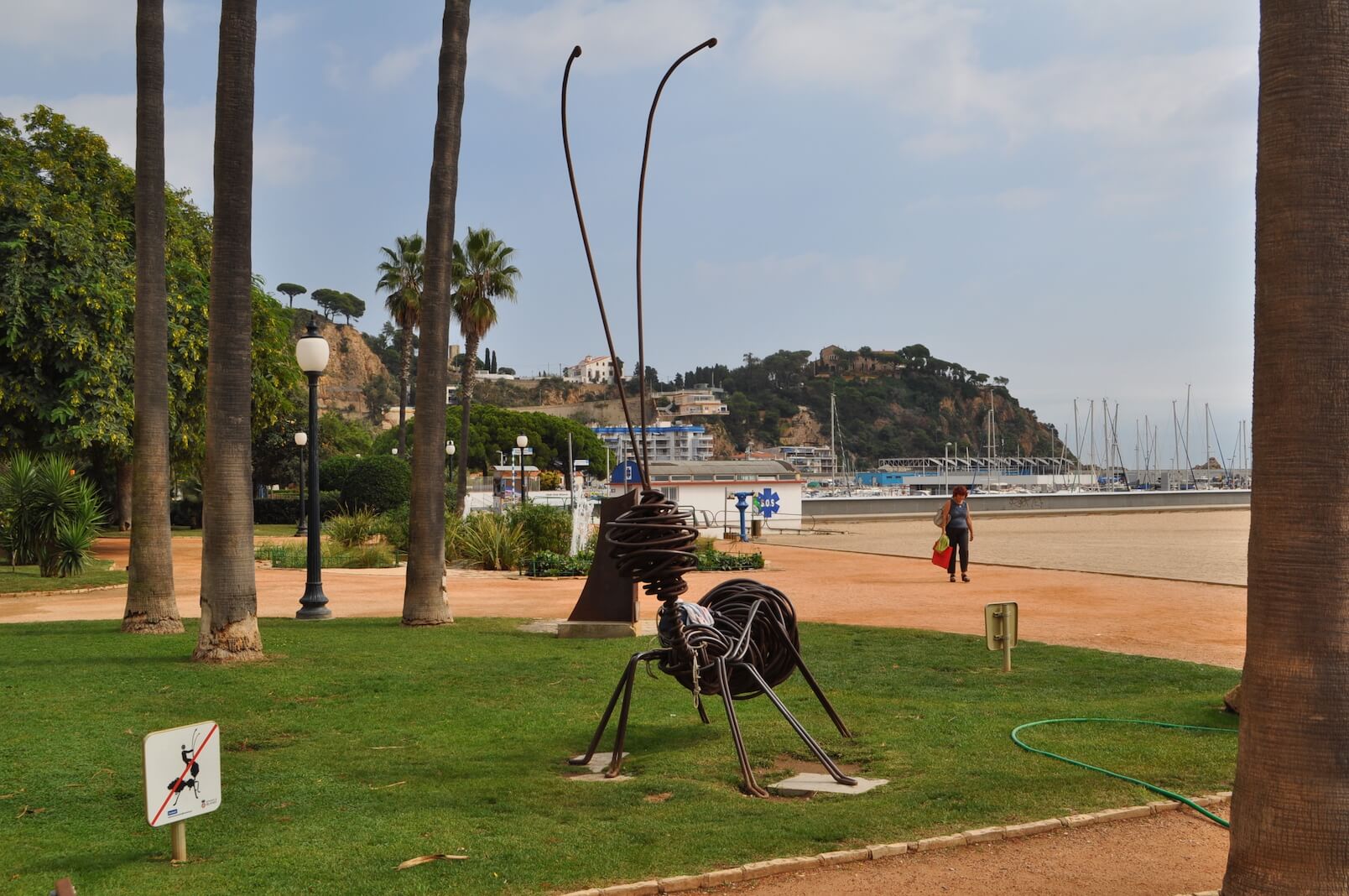
Quay Blanes. The sign is clear and without knowledge of Spanish.
Not so long ago spent a month and a half in Spain. During this time, I recovered from homelessness, found the Catalan referendum, got into childhood, learned to distinguish Spanish from Catalan, made an offer, found a defibrillator on the street and reassured the girl after a collision with a half-meter jellyfish.
We lived mainly in Blanes, a city 70 km from Barcelona. In order to be always in touch during the trip, the purchase of a sim card was one of the first things to do.
There are three major telecoms: Vodafone, Movistar, Orange. Vodafone had the cheapest offer, 4 Gb and 90 minutes for 15 euros. Autumn in Spain begins on September 21, so I got on another summer campaign with increased traffic, usually at that rate of 2 Gb. Chose them, went to make out.
')
They immediately realized that foreigners need a sim card. The operator started filling the form with data from my passport, but something went wrong at the finish line: a large red message pops up in the very center of the screen. The worker intensely peers at him, turns the screen towards me, knocks on the big red message with a finger, throws up his hands and offers to come on Saturday. “Temporary problems,” she says in broken English.
Saturday was the same, Sunday is a day off; gave them a head start on one day and next time they came on Tuesday. Again a big red message. I remember the story from work, when for one specific user the system fell for some unknown reason, and the rest worked perfectly; I propose to register a sim card for a girl. This naturally worked.
With languages here is an interesting situation. On the one hand, English is known far from everywhere. On the other hand, we were preparing for the trip and already knew most of the information, and the rest can be viewed on the Internet - the quest with Simka has already been completed. In self-service stores, in a cafe you can poke a finger in the desired position. In general, language problems with a superficial acquaintance with local life was not particularly.
They speak here in Spanish and Catalan. Yandex and Google translators support both languages, but very clumsy. The Reverso Context service allows you to understand the meaning of a word much better, showing examples of usage. It is very simple to understand in which language in front of you the menu: „cafe con leche“ - Spanish, „cafe amb llet“ - Catalan.
Feels caring about people. At each transition there are ramps for wheelchairs. It is clean on the streets, even it is customary not to take off your shoes when entering the house. Two times a month, holidays and festivals take place; On one of them, along the avenue, they organized many children's mini-games. On the waterfront, there are free moderately neat toilets (although some of them were closed after the end of the season). Separate garbage collection is welcome.
The local cultural center is a three-story library. Fiction, documentary, educational literature, there are CDs with music and movies. In the children's section there is a completely stunning series of 10 colorful, pleasant to the touch and presumably (Spanish after all) interesting encyclopedias. In the adult - Tolkien's stand with the "Hobbit", "The Lord of the Rings" and an elven outfit.
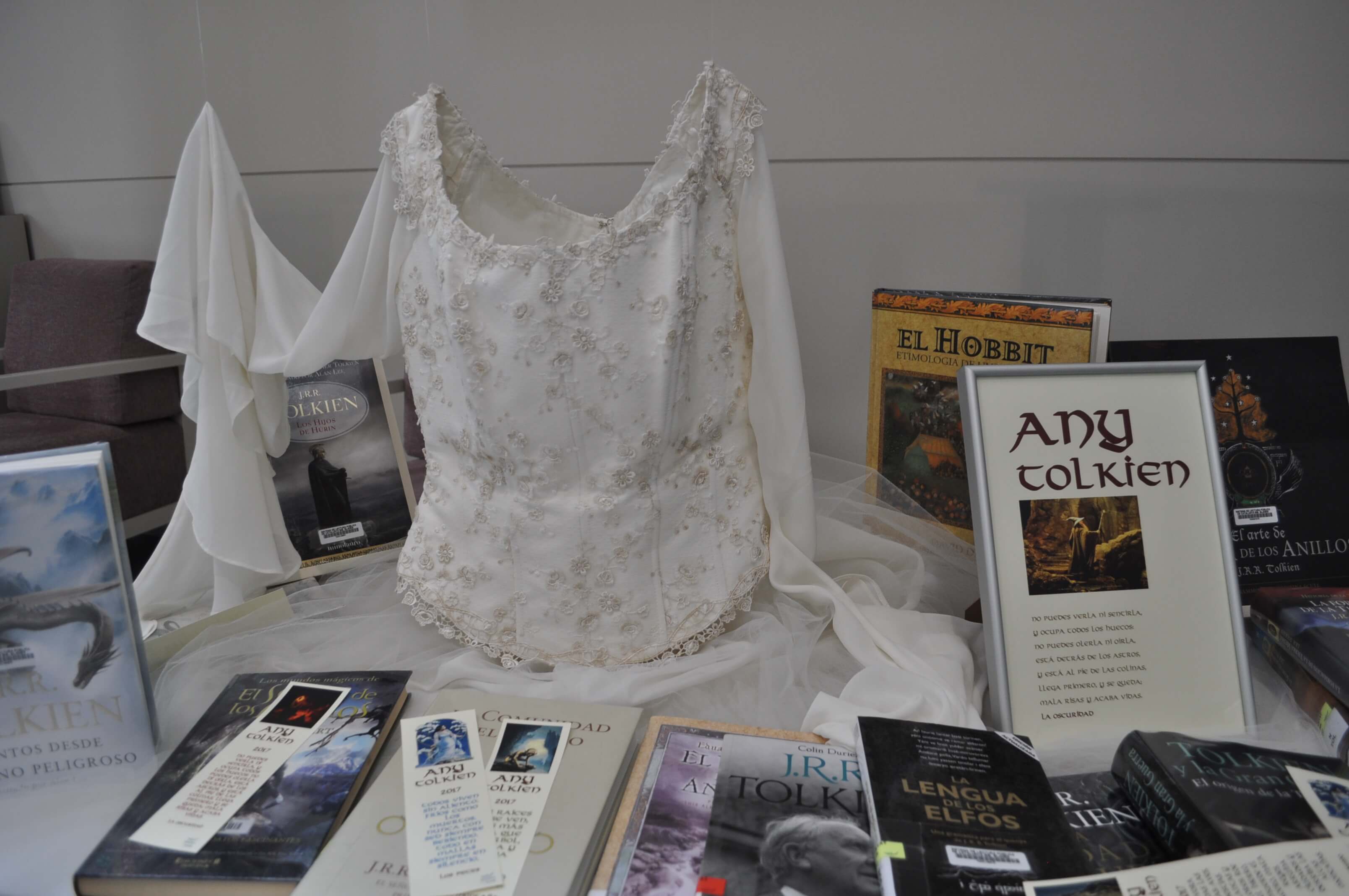
El Hobbit. La Lengua de los Elfos.
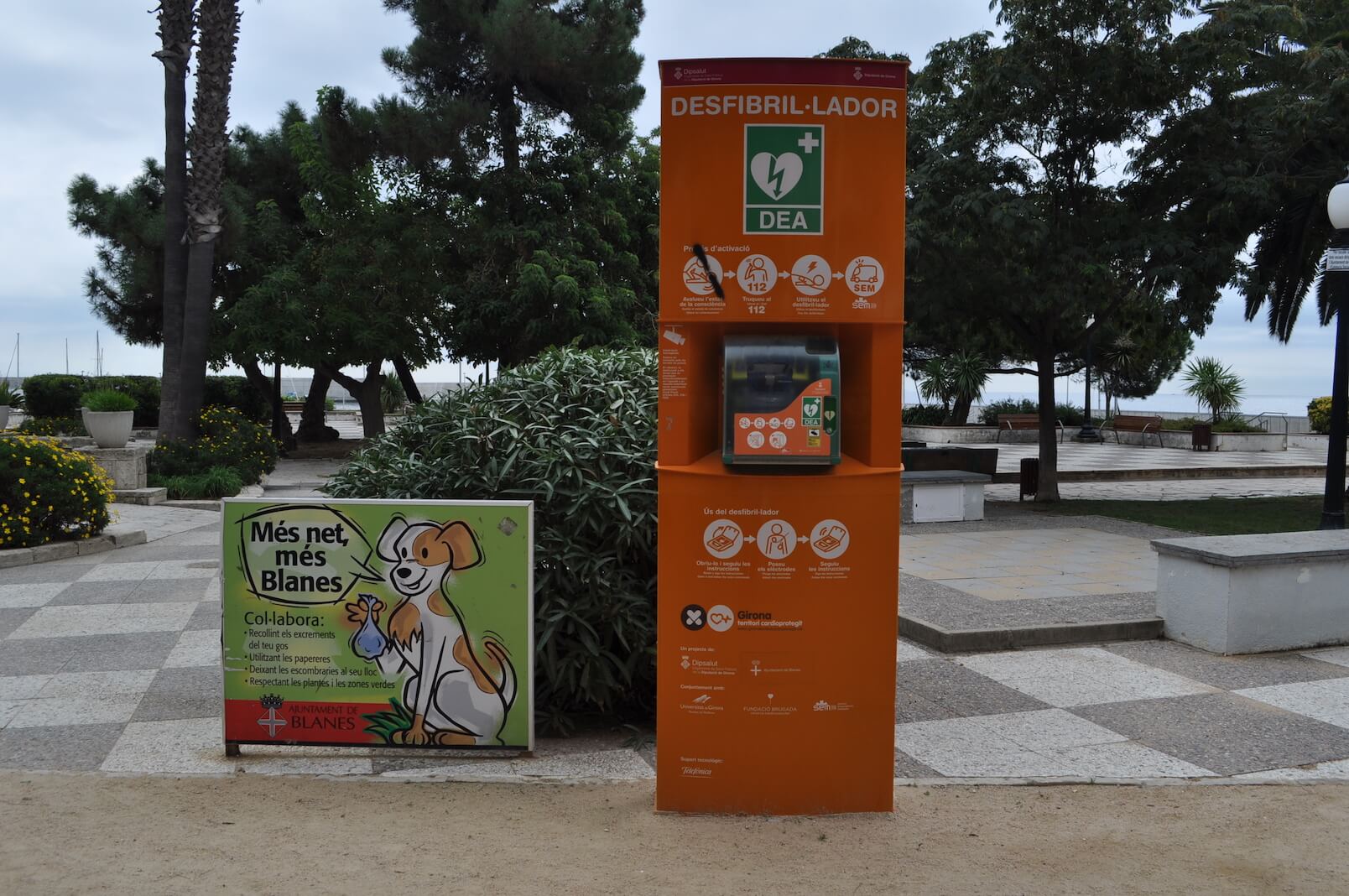
In some places there are defibrillators. I do not know the statistics of use, but it can save someone’s life.
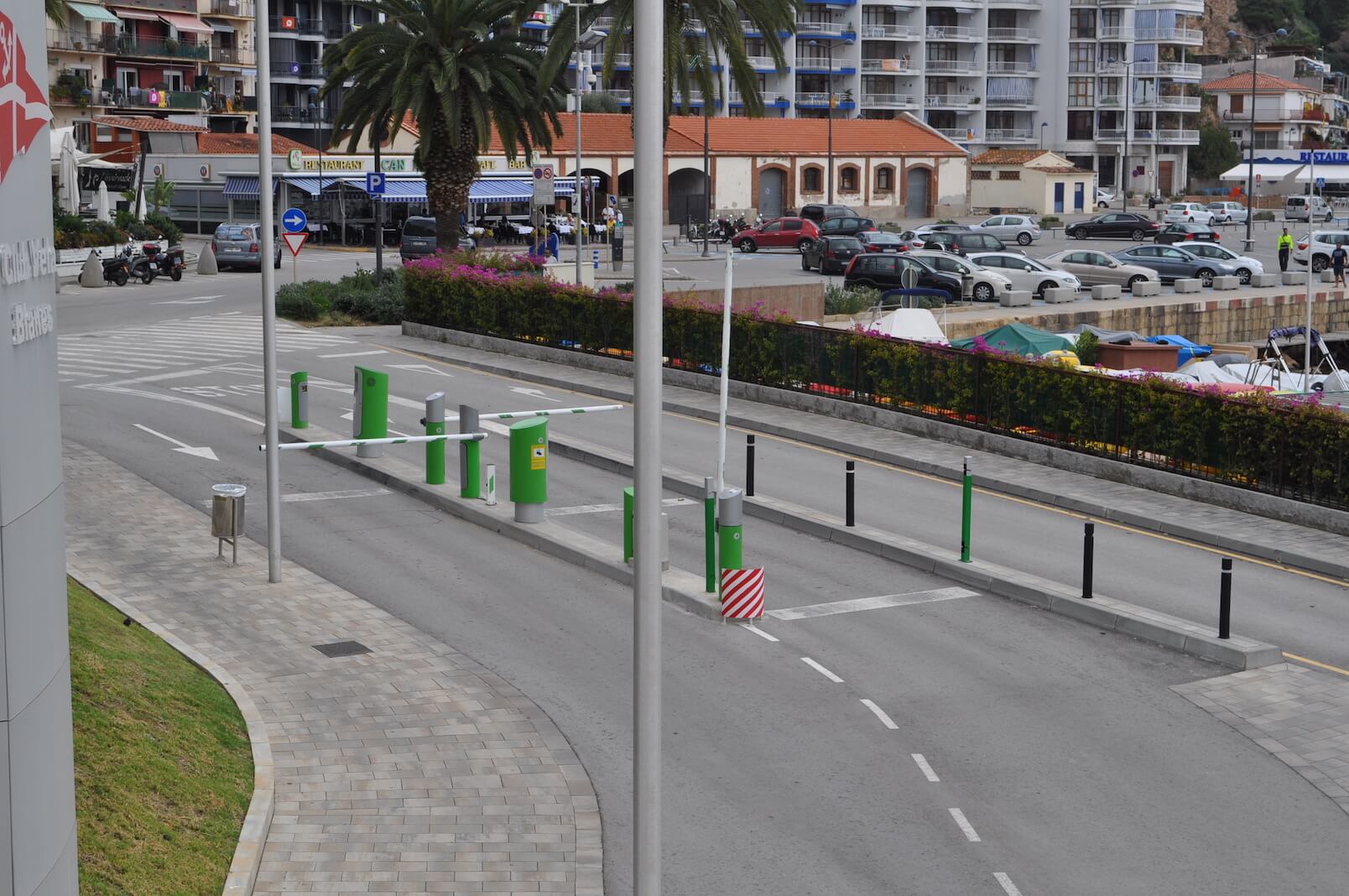
A girl on a skateboard drove into the barrier on the left and hit her. After 10 minutes, two guys arrived in the form of city service and repaired everything. While they were not there, that girl and her friends walked amicably back and forth with a fallen partition in her hands, trying to attach her to the place.
People are friendly, smiling and open. All greet, sincerely smile. Some people are humming or whistling right in the shops (maybe I was lucky, but I ran across very melodic salespeople. They whistled really cool!).
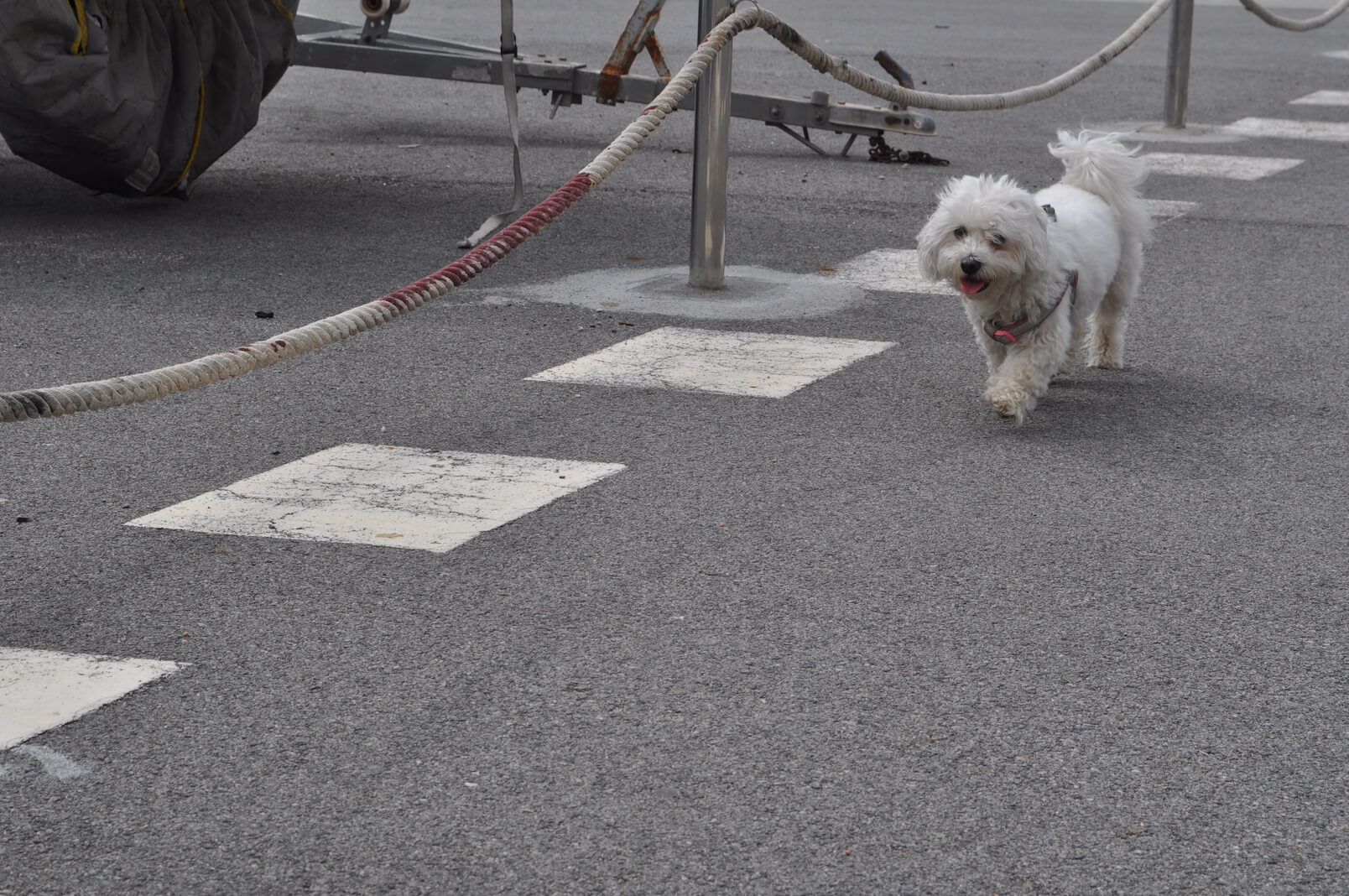
Dogs are loved here. And different, and not like in St. Petersburg: there are 15 dogs on the house, 13 of them are dwarf spitz. It happens that one person leads three or four dogs at once. In the cafe sometimes for dogs asking for a bowl of water.
Weather. Well, it's simple. In St. Petersburg at any time of the year it is windy, damp and cloudy. Even in the summer it is difficult to wake up, and it is better to leave the house in a scarf and light jacket (
In Blanes in October, he wore a T-shirt. Very sunny, a lot of strength and energy, get enough sleep faster and easier to get up. The warm weather in the fall was so unusual that it took pleasure just from going for bread in the morning.
Blanes is located on the coast of Costa Brava, which is considered to be colder than the coast in southern Spain. But despite this, throughout the trip (September - mid-October) it was possible to swim. Sometimes jellyfish are caught in the sea, but rescue workers on duty claim that they are not dangerous. We happened to face rhizostomy ; slight burning sensation at the point of contact, nothing critical.
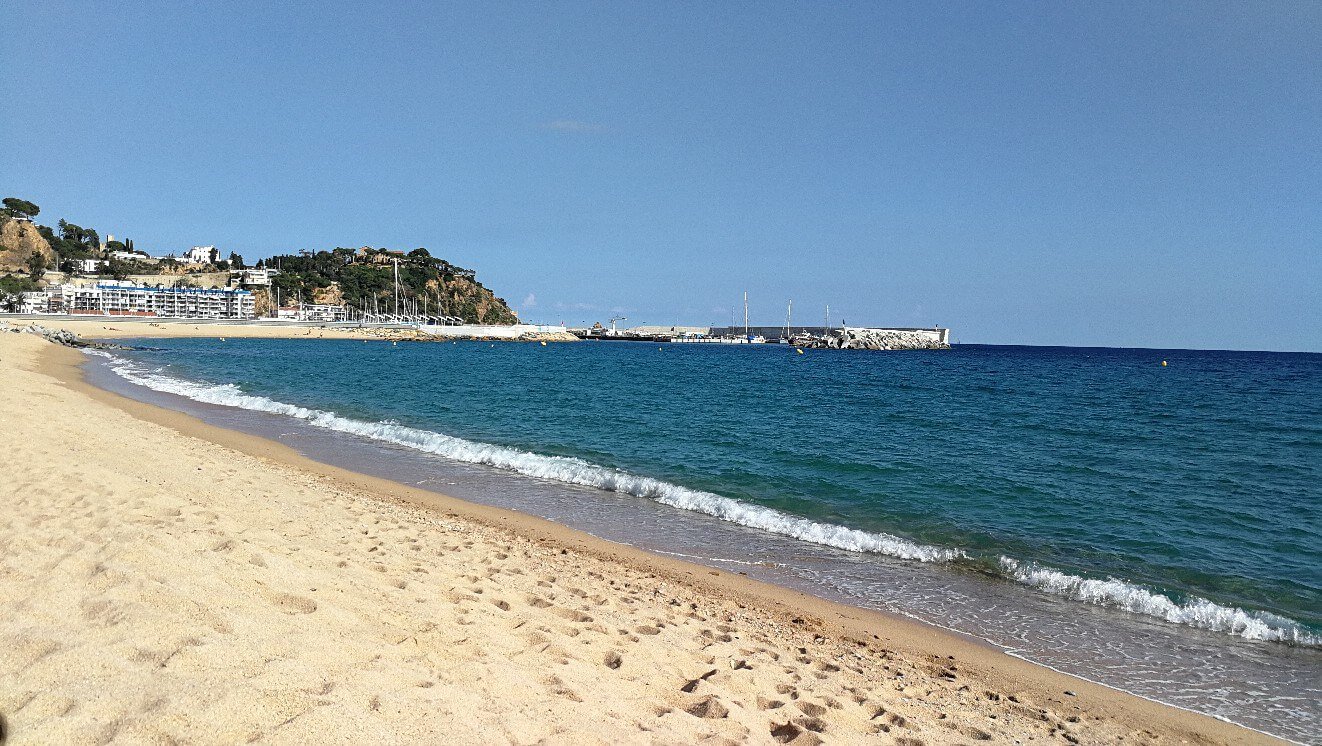
This is a city beach, there is practically no jellyfish. Our acquaintance with the local representatives of the scyphoid class took place on another beach, 20 minutes walk from Blanes.
About the positive side told, is it time about the negative? Figushki. Instead of negative moments there were unusual moments.
- The stove was gas, with gas in cylinders. At one sudden moment, the gas ended, and it turned out that at the weekend not only most of the stores were closed, but also the service responsible for the delivery of new cylinders. However, this is solved by the presence of a spare cylinder. We had it, but by that time we had spent it, and the owner of the apartment did not expect such gas gluttony from us and did not prepare another one. And we did not know how many cylinders were enough, and we ourselves did not ask.
- Unusual waste collection system: three times a week, an inorganic one was collected, four - an organic one. Therefore, on some particularly dusty days, we went with trash bags to the main city square and threw them there. But on the main square there was no container intended for plastic (only paper, glass and organic), so then I went to another square with a separate package.
- Many shops do not work during the day, only in the morning and in the evening.
- People around are smiling.
- Ice cream is sold in packs of four.
- In the crowns of the plane trees of Barcelona live flocks of wild parrots. They say the locals do not like them: they chant in the morning.
- Tea is not particularly drunk here, they prefer coffee. If you take tea in a cafe, be careful - it is sometimes considered an unusual overseas drink here, and the price is set appropriate.
- Without a cat sad.
Now about the money. Food prices are about the same as in St. Petersburg. Something more expensive, something cheaper. Pasta Barilla, for example, cost the same. And wine is cheaper. Baguettes are for 40 cents, for euro and for one and a half; all very tasty. The cost of food (not including cafes) for a month for two is 300 euros. A minute of very important information: the average check in the grocery - 7.40, and the median - 4.50.
Food in a cafe is more expensive than in St. Petersburg; coffee is a bit cheaper. Business lunch - from 10-12 euros. Local snack patatas bravas (potato wedges in red pepper and spices) 5 euro. Interestingly, the same size serving of french fries is two times cheaper. Coffee with chocolate and churros ≈7. Together with tapas with sangria to enjoy - 17 euros.
In Barcelona's T-10 pass, one trip by metro / bus within the city limits is 1 euro, but within 75 minutes you can change.
Clothing, accessories - you can find excellent goods at the price of Russian H & M / Zara, sometimes cheaper.
Communication is expensive, but the availability of the mobile Internet itself is more than worthwhile. On the way back there was a transfer in Amsterdam - Simka worked there too, conveniently.
Apartments on AirBnb (room with kitchen + bedroom) per month 870 euros - this is considering a 40% discount when booking from a month.
The wildest fact that I know about Spain : they say that the most effective way for a non-IT-student to move there is to live there for three years, and then with an expired visa (that is, being illegally) to apply for a residency move. Of those who did this, someone lived almost all three years illegally (you can even give children to local schools!), And only one month.
Summarizing what was said
Living in another country, feeling not quite a tourist, but a little bit like a local, was great. There is no feeling of constant rush, the need for a few days to have time to get to all places, try all the dishes, lie on all the beaches. Regular life, the usual daily routine - and at the same time at every step new experiences. I felt like a child, re-knowing the world around him.
If possible, be sure to arrange such a trip for yourself. It will be interesting.
Source: https://habr.com/ru/post/345588/
All Articles